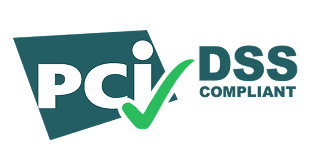Corporate accounting is essential for managing the financial health of large organizations. It involves recording, analyzing, and reporting financial transactions through key documents such as income statements, balance sheets, and cash flow statements. By providing accurate and timely data, corporate accounting ensures transparency, compliance with regulations, and effective decision-making. This blog covers the definition of corporate accounting, its various types, and the importance of corporate accounting in optimizing financial management, meeting legal obligations, and supporting strategic business decisions.
Corporate Accounting: Definition and Importance
Corporate accounting is a subfield of the accounting profession specialized in the accounting of companies. This is a structured way of documenting, analyzing and reporting on financial activity for companies to ensure they remain financially healthy and in compliance with laws and regulations.
The corporate accounting definition contains a variety of accounting procedures for handling complicated financial activities, like financial statements, accounting for revenue, accounting for expenses, and accurately taxing. This is fundamental to give investors, regulators, and management a clear picture of a company’s finances.
With complete, truthful financial data, companies can make better choices, remain transparent, and satisfy their legal and regulatory compliances. The importance of corporate accounting is instrumental in finance management and helps companies stay solvent and compliant in an ever-competitive market.
Types of Corporate Accounting
Corporate accounting involves several types of accounting. Each type of accounting serves a particular purpose in the financial management of a business. The variety of corporate accounting types ensures that every financial aspect of the business is well-managed, whether external reporting, internal decision-making, cost control, or tax compliance.
Here are the major types of corporate accounting:
Financial Accounting
Financial accounting makes use of specific accounting principles in order to provide external users with financial information, including various financial statements that summarize what happened during a period of time, e.g., the income statement, the balance sheet, and the cash flow statement.
Managerial Accounting
Managerial accounting, as the name implies, is a type of accounting employed by management to assist them in making better business decisions using budgeting, forecasting and analyzing financial data in order to improve operational efficiency and profitability.
Cost Accounting
It is concerned with the cost of production of goods or services. The purpose of cost accounting is to determine the costs of producing goods or services. With this information, businesses can set prices and control expenses. Cost accounting also helps companies to reduce costs and achieve cost efficiency. For instance, by analyzing direct and indirect costs involved in production, a company can control expenditure and improve profitability.
Also Read: Difference between cost accounting and financial accounting
Tax Accounting
This type deals with preparing tax returns and ensuring companies comply with tax rules. Corporate tax accounting refers to tax accounting of the companies, calculating their liabilities of the companies and ensuring that they follow the local and international tax laws. Through good tax accounting, a company saves taxes and avoids any penalties at the same time.
Importance of Corporate Accounting
Corporate accounting plays a significant role in the financial control of any business, but primarily the huge company. It has a wide range of functions, keeping financial controls within regulatory requirements and making strategic decisions easy for business. So here are the main reasons why you should never forget the importance of corporate accounting:
Ensures Financial Transparency
Through the process of corporate accounting, stakeholders such as investors, regulators and creditors can see whether a financial transaction on the balance sheet was a sale or purchase, profit or loss for the company, and secure in the knowledge that the books are always properly balanced.
Compliance with Legal and Regulatory Requirements
Businesses must maintain local, national and sometimes international accounting standards and tax laws. Corporate accounting keeps a company out of trouble with the law, keeping fines and audits at bay. Tax accounting is an important part of keeping the company’s tax liabilities in order.
Supports Informed Decision-Making
Effective corporate accounting allows the management of a business to analyze and utilize financial information in a way that will lead to better operational and strategic decisions. Managerial and cost accounting provide a business with information on its cost structure, which allows it to make decisions on which products or services are profitable and which ones are not, and to allocate resources accordingly.
Facilitates Business Planning and Budgeting
Precise financial information from corporate accounting allows a company to develop reliable budgets, forecast investments and plan ahead for market changes. For example, financial accounting provides historical data that is important for forecasting and long-term planning. Corporate accounting provides reliable financial information for these plans so that the company will not take financial risks when preparing for future changes.
Helps Optimize Financial Performance
By monitoring financial activity and examining cost and revenue flows, corporate accounting helps businesses manage financial performance. Cost and managerial accounting contribute to reducing costs and improving profitability by identifying and implementing alternative ways of managing operations.
Corporate Accounting Process
The corporate accounting process is the process that must occur to ensure the integrity of financial management and reporting within a large entity. Here is a brief account of the steps in the corporate accounting process:
Recording Financial Transactions
The first part of the corporate accounting process is capturing and recording all financial transactions accurately. Company purchases, sales, receipts and payments are all recorded in the company’s accounting system as they occur in real time. The most important element of the entire accounting process is accuracy. All financial reports are based on the financial data captured during this process.
Classifying Financial Information
After recording the transactions, they are classified according to their nature: assets, liabilities, equity, income and expenses. The purpose of classifying transactions is to enable accountants to arrange the financial data in a useful structure for the analysis. This, in turn, allows transactions of a similar nature to be grouped together, which facilitates the preparation of financial statements that are free from errors.
Summarizing Financial Data
The next step is to summarize the data into financial statements, which give an overview of the performance of the company over a period of time. The important statements are:
- The income statement (showing profit and loss)
- The balance sheet (showing assets and liabilities)
- The cash flow statement (showing an inflow and outflow of cash)
Financial Reporting
The summarized financial information is finally reported to different stakeholders, such as management, shareholders, creditors, regulators, and other interested parties, in the form of reports generated per standard accounting principles and according to legal and ethical requirements.
Analyzing Financial Performance
The final step is the analysis of the financial data in order to evaluate the company’s performance. By analyzing the financial data, managers are able to make better decisions about budget management, investments, and operational strategies. In addition, companies can identify their weaknesses in terms of costs or revenues.
Challenges in Corporate Accounting
While corporate accounting is important and has a clear role in managing business finances and complying with regulations, it also faces a number of challenges that need to be addressed for the work to achieve its goals. Understanding the challenges of corporate accounting is essential to overcome them and maintain the smooth flow of finances for the business.
Regulatory Compliance
One of the biggest challenges in the corporate accounting world relates to continuous compliance with constantly changing financial rules and tax regulations. Companies must repeatedly update their accounting methods to conform to new financial regulations, which can be time-consuming and complicated. Non-compliance can result in legal action, fines or a damaged reputation.
Businesses should invest in accounting software that is updated in accordance with any changes in regulations. Hiring staff with expertise in corporate tax and regulatory compliance will also help a company stay ahead of the changes.
Data Accuracy and Integrity
It is important that financial data is accurate and that anyone reviewing it can rely on it. Inaccurate financial reports can lead to bad decisions or even legal problems. However, it can be difficult to oversee all the data and make sure it’s correct, especially in large organizations.
So, these accounting processes can be automated, which helps reduce human error and improve data accuracy. Regular auditing and cross-checking of financial records also help maintain financial data integrity.
Fraud Detection and Prevention
The financial health of a company can be seriously endangered by fraudulent behaviour, such as financial manipulation or unauthorized transactions. Corporate accountants should be alert to signs of fraudulent behavior and discourage it through internal controls and risk management procedures.
Managing Cash Flow
Poor liquidity management can also lead to liquidity problems whereby a business’s short-term obligations (e.g., payment to suppliers or employees) cannot be met. Corporate accounting must ensure that money flows into and out of the business.
Complex Financial Structures
For larger corporations, this complexity can be substantial: with multiple subsidiaries, cross-border transactions, and various currencies, financial reporting and consolidation can be a serious challenge. Companies can simplify their jobs with sophisticated accounting software that can handle multi-currency transactions and consolidate reports from subsidiaries. Accountants also need to be trained to handle the complexities of global businesses.
Corporate Accounting in Modern Businesses
The needs of modern bussinesses are very different to those in the past, due to financial innovations and changes to the global economic environment. Moreover, in addition to the traditional function of corporate accounting, the modern corporation has to cope with strategic financial planning, as well as compliance and risk management.
Decision-Making Based on Data
Our current data-driven world relies heavily on corporate accounting when it comes to financial insights for making business decisions. For today’s businesses to be competitive, they rely on financial reports, detailed cost analyzes, and forecasts. Corporate accounting can be defined as the system used to analyze and record financial transactions in a business setting. Data analysis and financial modelling, empowering businesses to make informed decisions. In order to make effective decisions, companies need to understand if they are on the right track to achieve their goals or if they need to exert more effort.
Automation Using Technology
Modern corporate accounting has also harnessed automation. Thanks to digital tools, the number of mundane manual tasks required has been significantly reduced, while the likelihood of error has been minimized. Automation now enables businesses to undertake many formerly manual processes, including payroll, accounts payable and receivable, tax returns and financial reports, with greater ease, accuracy, speed and precision.
Compliance in a Global Market
If companies work in many countries, then they are required to report their accounts differently, depending on the country where they operate. In other words, they need to take into consideration different sets of rules that regulate accounting, taxes, financial reporting and so on.
Improved Fraud Detection and Risk Management
Modern corporate accounting has developed tools to track financial risk. Predictive analytics, real‑time monitoring and internal audits can allow a company to detect and prevent financial irregularities from blooming into outright fraud. Such a preventive approach to risk management not only saves a company from financial shocks but also increases confidence among stakeholders.
Focus on Sustainability and ESG Reporting
These days, business is more and more conscious of its environmental impact, how it treats people, and how responsibly it keeps track of how well of those measures. Investors need this information, and business needs it to know if it is making profits, while ensuring that it remains a viable business.
Adaptability to Economic Fluctuations
The economy can have its ups and downs. Accounting is useful for companies during this time because it helps them manage their money and make smart investment decisions, and also prepare for the tough times to come.
Optimizing Corporate Accounting for Your Business
Corporate accounting is vital to maximize the financial efficiency and accuracy of a company. Besides, a solid accounting knowledge can help you manage a company’s finances, minimize mistakes and misvaluations, and provide meaningful finance data to help your business develop. The strategies shared in this article enable businesses to optimize their corporate accounting.
Implement Cloud-Based Accounting Systems
A cloud-based accounting system provides 24/7 access to up-to-date financial data; it allows for fast automatic updating and integration with other business systems, and scalable and flexible business models for managing the organisation’s financial activities. This system centralizes the organisation’s financial information, automates reporting, and removes a lot of redundant manual work and tedious tasks.
Automate Repetitive Processes
The automation of simple accounting tasks such as payroll processing, invoice generation and tax filing cuts down on the number of human errors made, saves time and enhances the accuracy of business financial reporting. Automation ensures that financial entries are applied consistently, completing repetitive processes faster and with fewer mistakes. By excluding human interference from redundant accounting tasks, more time can be allocated to higher-level accounting operations like financial analysis.
Also Read: Automated Reconciliation
Leverage Financial Analytics and Reporting Tools
Advanced financial analytics tools can help businesses get a better understanding of the performance of their finances. The tools analyze trends, profitability, and key performance indicators (KPIs) to generate financial reports that are useful for making key business decisions, preparing budgets, and making forecasts. Businesses can use analytics to track inefficiencies that drive them to make informed, data-driven changes.
Improve Cash Flow Management
Healthy cash flow is essential for business continuity. Corporate accounting can be optimized by tightly monitoring account payables and account receivables. Dynamic discounting or early payment incentives can be used in order to improve cash liquidity. Cash flow management helps to cover operational expenses and to generate new investment opportunities.
Ensure Regulatory Compliance
Staying compliant with financial regulations, tax laws, and accounting standards is essential to avoid legal penalties and maintain business credibility. Corporate accounting can be optimized by using compliance-focused accounting software that automatically updates tax rules and ensures timely submissions of financial reports. Regular audits and reviews further enhance compliance and reduce the risk of financial discrepancies.
Enhance Internal Controls and Financial Oversight
Internal controls should be reinforced to prevent fraud, accounting inefficiencies, and accounting errors. Companies can establish explicit financial rules, regular internal audits, and segregation of duties in the accounting function. With better oversight, businesses will be able to protect their financial capital and secure their financial information.
Train Accounting Personnel Continuously
The accounting team must be trained and developed continually as a result of accounting standards, technologies and regulations everchanging. Routine training ensures accounting personnel are familiar with the up-to-date accounting tools and practices, which allows them to use advanced accounting tools effectively. Trained staff would help improve the efficiency and effectiveness of the corporate accounting process.
Outsource Non-Core Accounting Functions
Businesses seeking to maximize resource utilisation and lower operating costs could outsource accounting functions that are not part of the core business. These functions may include managing payroll or preparing tax returns, thereby allowing the company to allocate its financial management efforts to more strategic decisions while the accounting is undertaken by specialists.
Conclusion
Corporate accounting plays a vital role in the overall financial management and success of any business. It ensures accurate financial reporting, compliance with regulations, and provides valuable insights for decision-making. By understanding the types of corporate accounting, the importance of corporate accounting in business, and adopting modern practices, companies can significantly improve their financial performance.
Addressing common challenges like regulatory compliance, fraud prevention, and data management is key to maintaining the integrity of corporate accounting. Implementing advanced accounting systems, automating repetitive processes, and ensuring internal controls can further optimize financial operations.
In today’s dynamic business environment, staying adaptable and up-to-date with technological advancements is essential. Optimizing corporate accounting not only improves financial transparency but also builds trust with stakeholders and paves the way for long-term growth and sustainability.
Effective corporate accounting is not just about managing finances—it’s about creating a strong foundation for future success by ensuring accuracy, transparency, and efficiency in all financial dealings.
FAQs
What qualifications are needed for a corporate accountant?
Corporate accountants typically require a bachelor’s degree in accounting, finance, or a related field. Professional certifications such as CPA (Certified Public Accountant) or CA (Chartered Accountant) are often preferred. Knowledge of accounting software, tax laws, and corporate finance principles is also essential for corporate accountants to perform their duties effectively.
Why is corporate accounting critical for investors?
Corporate accounting provides transparent and accurate financial data that investors rely on to assess the financial health and performance of a business. Investors use these reports to determine the company’s profitability, liquidity, and risk level, which influences their investment decisions. High-quality corporate accounting builds trust with investors and enhances the company’s ability to attract capital.
Can small businesses adopt corporate accounting practices?
Yes, small businesses can adopt certain corporate accounting practices, such as using advanced financial management software, generating detailed financial reports, and ensuring regulatory compliance. While the scale may differ, the principles of accurate bookkeeping, financial transparency, and strategic planning apply to businesses of all sizes.
How is corporate accounting different from regular accounting?
Corporate accounting is specifically focused on managing the financial operations of corporations, including tasks like preparing financial statements, maintaining ledgers, handling taxation, and ensuring regulatory compliance. Regular accounting may involve simpler bookkeeping tasks and financial management for small businesses or individuals. Corporate accounting often requires a deeper understanding of complex financial frameworks, multiple departments, and stakeholders.
How does corporate accounting help in mergers and acquisitions?
Corporate accounting plays a crucial role in mergers and acquisitions by ensuring accurate financial reporting and due diligence. Accountants review the financial statements of the companies involved to assess valuation, identify risks, and analyze liabilities. This ensures both parties understand the financial standing and helps facilitate a smooth transition during the acquisition process.
How does corporate accounting contribute to risk management?
Corporate accounting contributes to risk management by maintaining accurate financial records, ensuring regulatory compliance, and implementing internal controls to prevent fraud and financial mismanagement. Regular financial reviews and audits help identify potential risks early and ensure the company’s financial integrity.
What is the role of corporate accounting in tax planning?
Corporate accounting helps businesses manage their tax liabilities by keeping accurate records of income, expenses, and deductions. Accountants also ensure that the company complies with tax laws and regulations, helping to minimize tax obligations and avoid penalties. Efficient tax planning can improve cash flow and overall profitability.
What are some emerging trends in corporate accounting?
Emerging trends in corporate accounting include the adoption of AI and machine learning for automating financial tasks, blockchain for secure and transparent transactions, and cloud-based accounting solutions for real-time financial reporting. These trends enhance efficiency, reduce errors, and allow for better data analysis.
How can technology improve corporate accounting processes?
Technology, such as cloud-based accounting software, automation tools, and data analytics platforms, streamlines financial tasks, enhances reporting accuracy, and reduces manual errors. These tools also provide real-time financial data, which supports faster decision-making and improves overall operational efficiency in corporate accounting.
What is the impact of poor corporate accounting on a company?
Poor corporate accounting can lead to financial mismanagement, inaccurate reporting, and non-compliance with regulatory standards. This can result in legal penalties, loss of investor trust, and damage to the company’s reputation. In extreme cases, poor accounting practices can lead to bankruptcy or significant financial losses.












